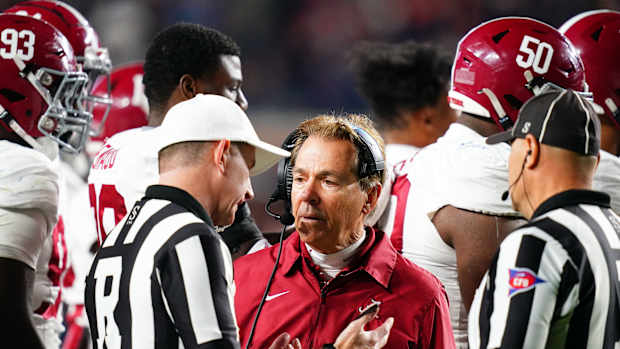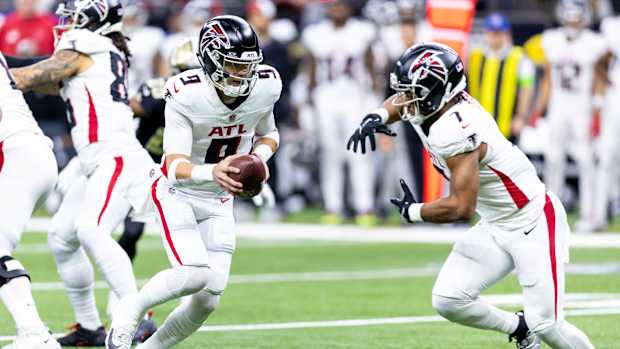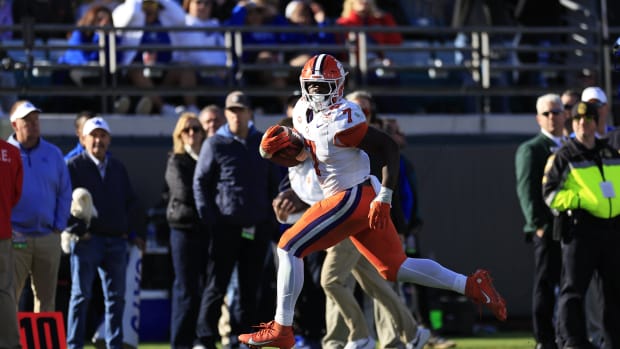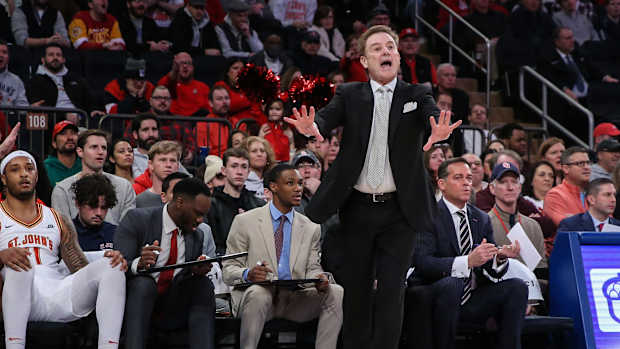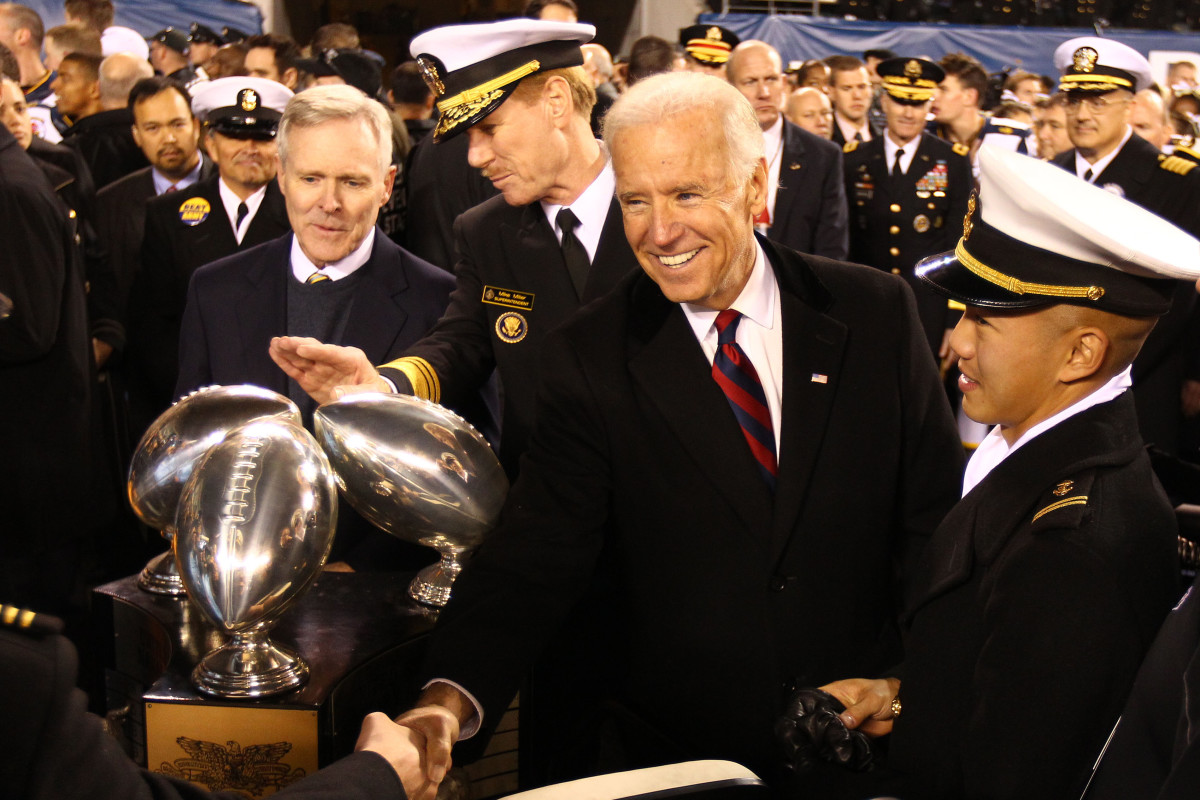
President Biden Meets With Ex-College Football Players on Issues in College Sports
This Wednesday, President Joe Biden hosted a group of former college football players to discuss health and safety, NIL, and college athlete employment and unionization efforts. The invitees to the Roosevelt Room included former college football players Andrew Luck, Desmond Howard, Ryan Clark, Rod Gilmore, Keith Marshall, and Jordan Meachum.
The ex-college football players conversed with President Biden, National Economic Council Director Lael Brainard, and Office of Public Engagement Director Steve Benjamin. The discussion lasted nearly one hour, primarily focusing on standardizing player health and safety guidelines and medical support during and after student-athletes’ playing careers. While no policy decisions were made in this short discussion, the meeting in and of itself displays that the current turbulence in college sports is significant to the Biden Administration.
President Biden, who spent approximately 30-40 minutes in the room, expressed support for long-term healthcare for players after graduation. President Biden was reportedly surprised upon hearing that schools do not cover the costs of second opinions or independent doctors for players.
Revenue-sharing opportunities for college athletes also gained traction. Recent trends in conference realignment and the ever-increasing valuations of television rights contracts blur the lines between revenue college athletics and their professional athletic counterparts. The changes in the economic realities of collegiate sports have made many wonder if withholding revenue from athletes in the name of amateurism is proper, given the explosion of revenue and schedule demands on non-regional conferences.
More common ground was found between the parties through mutual support of union-like representation for the advocacy of collegiate football players. The specifics regarding the structuring of such an advocacy group remain uncertain. While an employment regime in college sports would blaze a path toward a formal union to advocate for players, the implications of such a drastic change to the structuring of college sports, such as the elimination of Title IX protections and the potential non-viability of non-revenue sports, separate those who claim to be “pro-athlete” into pro-employment and anti-employment factions.
While this meeting is an important step in raising awareness and highlighting the urgency for reform in college athletics, it did not come without criticism from industry leaders. Morgan Belvedere, a three-time national champion gymnast at the University of Florida and leader in the NIL space, was disappointed in the composition of the group invited to the White House.
Division-I college football players at both the FBS and FCS levels make up less than 10% of all Division-I student-athletes. Belvedere states that “every issue discussed at this meeting is a concern of every collegiate athlete; NIL, player safety, and athlete employment are not specific to football; the opinions, desires, and concerns of those athletes that make up the rest of the NCAA are important in these conversations.”
Belvedere underwent three surgeries during her career at the University of Florida and still deals with the consequences of those injuries today: “There is not a single athlete participating in NCAA sports who does not face the risk of injuries that can have life-altering consequences.”
More diverse representation in these discussions is imperative. The potential removal of Title IX is a crucial topic in deliberations regarding student-athlete employment –– discussions on this matter without current and former female student-athletes in the room leave a critical voice out of the decision-making process.
In this meeting with President Biden, no current college athletes were present. Belvedere believes future discussions must include current athletes: “Current voices need to be heard when making decisions regarding NIL policy. Nobody in that room has signed a NIL deal while in college; none have first-hand experience dealing with collectives or living inside the creator-based economy NCAA athletes have been thrust into.”
Undoubtedly, discussion concerning collegiate athletics will continue in Washington, D.C. It remains uncertain what voices will be invited to advocate for the rights of all future collegiate athletes.

